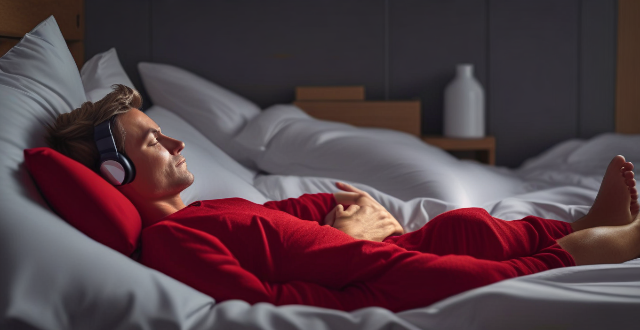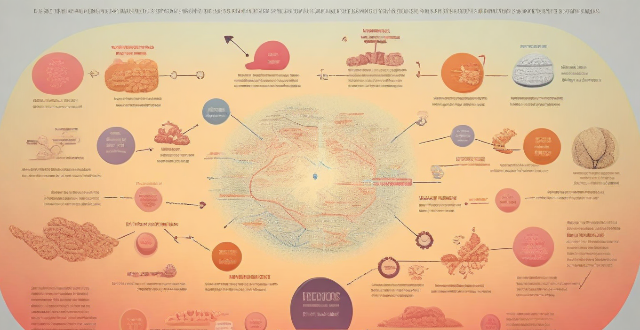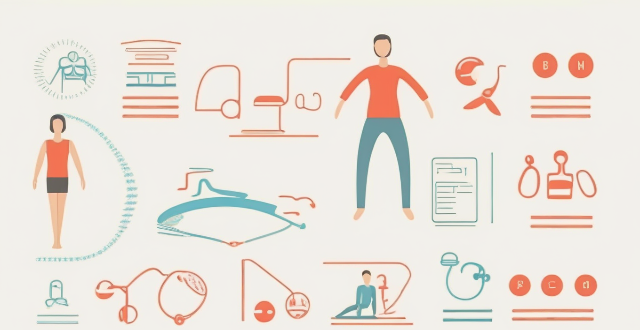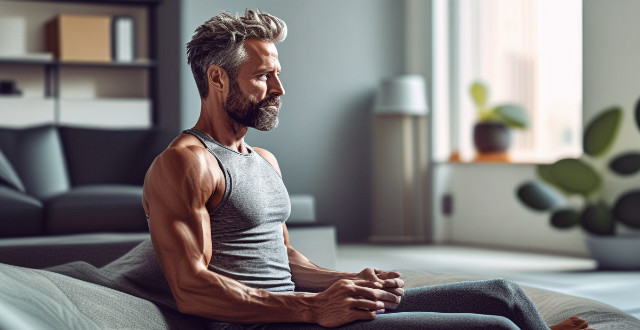Therapy Depression

Can working out be a form of therapy ?
Working out can be a form of therapy as it has psychological benefits like reducing stress and anxiety, improving self-esteem, promoting better sleep, and enhancing cognitive function. To use exercise as a therapeutic tool, one should set realistic goals, choose enjoyable activities, focus on the process rather than the outcome, incorporate mindfulness techniques, and seek professional guidance when needed.

How can parents recognize and respond to signs of postpartum depression ?
Recognizing Signs of Postpartum Depression (PPD) is crucial for new mothers to seek help if needed. Common signs include persistent sadness, difficulty bonding with the baby, changes in appetite or sleep patterns, irritability, withdrawal from social activities, and thoughts of harming oneself or the baby. If you notice any of these symptoms, take action by talking to your doctor, seeking support from loved ones, joining a support group, taking care of yourself, and considering professional help. Remember, seeking help is not a sign of weakness; PPD is a real medical condition that requires attention and treatment.

Can counseling help women overcome postpartum depression ?
Postpartum depression is a serious mental health condition that affects new mothers after childbirth. Symptoms include sadness, anxiety, and exhaustion, making it difficult for women to care for their babies or themselves. Counseling has been shown to be an effective treatment option for PPD. It provides a safe space to express emotions, identifies triggers, builds coping skills, enhances self-care, improves relationships, and supports medication management. If you or someone you know is experiencing symptoms of postpartum depression, consider seeking professional counseling to get the support and guidance needed to overcome this challenging condition.

Can physical therapy help with sports injury recovery ?
Physical therapy is beneficial for sports injury recovery, addressPhysical therapy is beneficial for sports injury recovery, address restoration, injury prevention, and addressing pain management, function restoration, injury prevention, and supporting a safe return to activity. It involves assessment, diagnosis, manual therapy, range of motion exercises, strengthening exercises, stretching, balance training, functional training, gradual increase in activity, and education on injury prevention and home exercise programs.

In what ways can virtual reality be utilized for medical training and therapy ?
Virtual reality is revolutionizing medical training and therapy by providing immersive, interactive experiences that simulate real-world scenarios. In medical training, VR offers hands-on practice in a safe environment, multisensory learning experiences, interactive anatomy education, and tools for surgical planning and collaboration. In therapy, it is used for pain management, motor skills rehabilitation, cognitive rehabilitation, mental health treatment, specialized interventions like ASD therapy, and neurorehabilitation. The potential of virtual reality in healthcare is vast, with ongoing technological advancements expected to bring further innovations in this field.

What are the benefits of group therapy for women with emotional disorders ?
Group therapy offers numerous benefits for women with emotional disorders, including increased social support, improved self-efficacy, and reduced symptoms of anxiety and depression. This form of treatment can be a powerful tool for promoting healing and personal growth.

Can regular physical activity prevent depression ?
Regular physical activity can reduce depression risk by releasing endorphins, improving sleep, and boosting self-esteem. Start with 30 minutes daily of activities like walking or swimming, and consider joining a fitness class for motivation. Gradually increase intensity and listen to your body to avoid overexertion.

What are the best ways to manage anxiety and depression in women ?
The text discusses several strategies for managing anxiety and depression in women, emphasizing the importance of seeking professional help, practicing self-care, building a support network, making lifestyle changes, and considering medication. It highlights different types of therapy and medical professionals to consult, as well as various self-care practices like exercise, mindfulness meditation, and journaling. The article also touches on the significance of social connections and time management in managing mental health. Finally, it provides information on antidepressants and stress reduction techniques, advising readers to work closely with healthcare professionals to find the best approach for their needs.

Can exercise be a substitute for psychotherapy in treating mild depression ?
This article explores the potential of exercise as a treatment for mild depression and its possible limitations. While exercise can boost mood, reduce stress, improve sleep quality, and enhance self-esteem, it may not address the cognitive aspects of depression or be suitable for everyone. Therefore, it should not be considered a complete substitute for psychotherapy in all cases.

How much exercise is needed to reduce anxiety and depression symptoms ?
Exercise has been shown to reduce anxiety and depression symptoms, with moderate-intensity aerobic exercise for at least 150 minutes per week being effective. However, individual factors such as age, gender, health condition, and lifestyle can affect the amount of exercise needed. It is important to choose enjoyable and sustainable activities for long-term use, and seek professional help if struggling with mental health issues.

Is there a link between exercise and reduced risk of depression ?
**Link Between Exercise and Reduced Risk of Depression: A Comprehensive Overview** Depression is a prevalent mental disorder that affects millions globally. While its exact cause remains unclear, various factors, including lifestyle choices like exercise, have been studied for their potential to reduce the risk. This article delves into the evidence supporting the link between exercise and reduced risk of depression, exploring studies on animals and humans, potential mechanisms underlying this relationship, and practical tips for incorporating exercise into one's routine. **Studies on Animals:** Research has shown that regular exercise in rats can increase BDNF levels, a protein linked to the development and treatment of depression. This suggests that exercise may help reduce depression risk by boosting BDNF levels. **Studies on Humans:** Numerous studies have investigated the human connection between exercise and depression. A meta-analysis found exercise significantly reduces depressive symptoms compared to no treatment or placebo interventions. Another longitudinal study showed that regular physical activity lowers the likelihood of developing depression compared to sedentary behavior. **Potential Mechanisms:** Several mechanisms could explain how exercise reduces depression risk: * **Neurobiological Changes:** Exercise increases BDNF levels, promoting neuronal growth and improving mood. It also alters neurotransmitter levels involved in mood regulation. * **Endocrine Response:** Exercise stimulates endorphin release, producing pleasure and reducing pain perception, contributing to improved mood. * **Psychosocial Benefits:** Regular physical activity provides social interaction opportunities, enhancing mental health. It also improves self-esteem and body image. * **Stress Reduction:** Exercise reduces stress by decreasing cortisol secretion and promoting relaxation, which helps prevent depression since stress is a known risk factor. **Practical Tips:** To reduce your depression risk through exercise, start slowly with low-intensity activities, find enjoyable exercises, set realistic goals, make it social, and monitor your progress. In conclusion, ample evidence supports a link between exercise and reduced risk of depression. Both animal and human studies demonstrate the mood-enhancing effects of regular physical activity. By understanding the potential mechanisms and incorporating exercise into your routine, you can potentially lower your risk of developing depression and improve your overall well-being.

Can climate change exacerbate mental health issues such as depression and anxiety ?
Climate change can exacerbate mental health issues such as depression and anxiety through various pathways, including extreme weather events, displacement and loss of home, food insecurity, and economic stress. It is crucial for policymakers and healthcare professionals to recognize the connection between climate change and mental health and implement strategies to mitigate the adverse effects of climate change on mental well-being.

What are the latest trends in non-invasive beauty treatments ?
Non-invasive beauty treatments have grown in popularity as they offer cosmetic enhancements without surgery. Latest trends include microneedling for skin rejuvenation, laser hair removal for long-lasting hair reduction, chemical peels for improved skin texture, ultrasound therapy for boosting collagen production, and LED light therapy for addressing various skin concerns. These treatments cater to different aesthetic needs and are generally well-tolerated with minimal downtime.

What are the treatment options for COVID-19 ?
The text is about the different treatment options for COVID-19. The treatments are divided into symptomatic treatment, antiviral treatment, monoclonal antibodies, convalescent plasma therapy, supportive care, and other potential therapies. Symptomatic treatment includes rest and hydration, pain relievers, and antibiotics if necessary. Antiviral medications such as Remdesivir and Favipiravir may be used in severe cases to suppress the virus. Monoclonal antibodies like Bamlanivimab and Casirivimab and Imdevimab can be used to treat certain patients at high risk of developing severe illness. Convalescent plasma therapy involves collecting blood plasma from recovered patients and transfusing it into active patients. Supportive care includes oxygen therapy, mechanical ventilation, and corticosteroids. Other potential therapies being investigated include interferon, nitazoxanide, and experimental drugs currently in clinical trials.

What are the most common mental health issues faced by women ?
Women can experience a range of mental health issues throughout their lives, with some conditions being more commonly reported among them. These include depression, anxiety disorders, eating disorders, posttraumatic stress disorder (PTSD), perinatal depression and anxiety, premenstrual dysphoric disorder (PMDD), and borderline personality disorder (BPD). The prevalence and presentation of these issues can be influenced by cultural, societal, and biological factors, as well as access to care and societal stigma.

What are some natural remedies for stress relief ?
Stress is a common problem that affects people of all ages and backgrounds. While there are many ways to manage stress, some people prefer to use natural remedies instead of relying on medication or other treatments. Here are some natural remedies for stress relief: 1. Exercise: Regular exercise can help reduce stress by releasing endorphins, which are natural mood boosters. Even a short walk or jog can make a big difference in your overall well-being. 2. Meditation: Meditation is a popular way to reduce stress and improve mental clarity. It involves focusing on your breathing and clearing your mind of distractions. There are many different types of meditation, so you can find one that works best for you. 3. Yoga: Yoga combines physical exercise with mindfulness and relaxation techniques to help reduce stress and improve overall health. Many yoga classes also include music and aromatherapy to further enhance the experience. 4. Massage therapy: Massage therapy can help relieve muscle tension and promote relaxation by stimulating the release of endorphins and reducing cortisol levels in the body. 5. Aromatherapy: Essential oils such as lavender, peppermint, and chamomile have been shown to have calming effects on the brain and body, helping to reduce stress and anxiety. 6. Herbal teas: Herbal teas like chamomile, ginger, and lemon balm contain compounds that have been shown to have anti-inflammatory and calming effects on the body. 7. Deep breathing exercises: Deep breathing exercises involve taking slow, deep breaths through your nose while focusing on your breath. This helps to calm your mind and relax your body. 8. Spending time in nature: Being surrounded by nature has been shown to have a positive impact on mental health and reduce stress levels. Taking a walk in the park or going for a hike can be a great way to de-stress after a long day at work or school.

Is it true that working out can improve your mood ?
Working out can improve your mood by releasing endorphins, boosting self-esteem, improving sleep quality, providing social interaction, and reducing symptoms of depression.

Can hormone imbalances contribute to mental health problems in women ?
Hormonal imbalances can contribute to mental health problems in women by disrupting mood, emotions, and cognitive processes. Common issues related to hormonal imbalances include premenstrual dysphoric disorder, postpartum depression, and mood changes during perimenopause and menopause. Treatment options may include hormone therapy, antidepressants, and lifestyle changes.

How does environmental stress from climate change influence mental health disorders such as anxiety and depression ?
Climate change is a global issue that not only affects the environment but also has significant implications for human health, including mental health. Environmental stress from climate change can exacerbate existing mental health disorders such as anxiety and depression or even trigger new ones. One of the most direct ways in which climate change impacts mental health is through increased exposure to natural disasters such as hurricanes, floods, wildfires, and heatwaves. These events can cause traumatic experiences, loss of homes and communities, displacement, and financial hardship, all of which are risk factors for developing mental health disorders like anxiety and depression. Climate change affects ecosystem services, such as air and water quality, food production, and outdoor recreational opportunities, all of which have been linked to mental well-being. The socioeconomic impacts of climate change, such as job loss in industries affected by climate policies or extreme weather events, can lead to financial insecurity and social disruptions that exacerbate mental health conditions. Anticipatory anxiety about the potential consequences of climate change can also contribute to chronic stress and exacerbate anxiety and depressive symptoms. Coping mechanisms and building resilience are essential for managing the psychological impacts of environmental stress.

Can exercise be a substitute for medication in treating some forms of emotional distress ?
This article explores the potential benefits of exercise in treating emotional distress, such as anxiety and depression, and discusses whether it can be a substitute for medication. While exercise has numerous benefits for mental health, including stress reduction and improved sleep quality, it may not be suitable for everyone or replace medication in all cases. Factors such as symptom severity and individual differences should be considered when determining the best approach to managing emotional distress. Exercise should be viewed as part of a comprehensive treatment plan that includes medical care, therapy, and lifestyle changes tailored to the individual's needs.

Can anyone benefit from the services of a sports rehabilitation center, or is it only for athletes ?
Sports rehabilitation centers offer a range of services, including physical therapy, athletic training, massage therapy, nutrition counseling, and mental health support, to help individuals recover from sports-related injuries and improve their overall physical health. These centers can benefit anyone who has experienced a sports injury or is looking to improve their physical fitness, not just athletes.

How can sport psychology counseling help with mental health issues such as anxiety and depression in athletes ?
Sport psychology counseling is a valuable resource for athletes dealing with mental health issues such as anxiety and depression. It involves understanding the problem, setting goals, managing stress, building confidence, developing emotional intelligence, and fostering social support. Tailored approaches, consistency, and patience are key to achieving long-term success in improving both mental well-being and performance.

What is the role of a female therapist in treating women's psychological problems ?
The text discusses the role of a female therapist in treating women's psychological problems, emphasizing empathy, understanding, building trust, addressing gender-specific issues, and providing supportive interventions. The article suggests that women may feel more comfortable sharing their experiences with someone who can relate to their struggles and acknowledges the importance of validation for women who have been dismissed or minimized by others. Building trust is essential, especially for women who have experienced trauma or abuse, and creating a safe space involves establishing clear boundaries and maintaining confidentiality. Cultural sensitivity is also crucial when working with women from different backgrounds. Addressing gender-specific issues such as reproductive health concerns, body image, and trauma requires specialized treatment approaches. Providing supportive interventions like mindfulness practices and group therapy can help women connect with others and receive support from peers. Overall, the role of a female therapist is multifaceted and involves creating a safe and non-judgmental space to help women navigate their unique challenges and work towards improved mental health outcomes.

How does sport psychology counseling differ from traditional counseling ?
Sport psychology counseling and traditional counseling are two distinct fields that share some similarities but also have key differences. The primary focus of sport psychology counseling is on helping athletes improve their performance by addressing mental and emotional factors that affect their sports performance, while traditional counseling focuses on helping individuals deal with a wide range of personal and emotional issues. The approach used in sport psychology counseling includes techniques such as goal setting, visualization, relaxation techniques, and cognitive restructuring, while traditional counseling uses a variety of therapeutic approaches to help individuals deal with their emotional and psychological issues. The primary goal of sport psychology counseling is to help athletes improve their performance by addressing mental and emotional factors that affect their sports performance, while the primary goal of traditional counseling is to help individuals improve their overall well-being by addressing a wide range of personal and emotional issues. Sport psychology counseling is typically sought by athletes who want to improve their performance or overcome obstacles that are hindering their success, while traditional counseling is sought by individuals who are dealing with a wide range of personal and emotional issues.